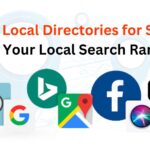In today’s digital landscape, effective content marketing strategies for small businesses are essential for attracting, engaging, and retaining customers. Unlike large corporations, small businesses often have limited resources, so having a well-thought-out content marketing plan can make a significant difference. This guide provides actionable tips and techniques to help small businesses leverage content marketing to boost online visibility and drive growth.
Why Content Marketing Matters for Small Businesses
Before diving into the best content marketing strategies for small businesses, it’s important to understand why content marketing is crucial:
- Builds Brand Awareness: Quality content helps your business get noticed by potential customers, increasing brand visibility.
- Engages Your Audience: Content that provides value keeps your audience engaged and encourages them to return.
- Boosts SEO and Online Visibility: Well-optimized content improves your website’s search engine rankings, attracting organic traffic.
Image Suggestion: Include an infographic showing the benefits of content marketing for small businesses, such as increased brand awareness, customer engagement, and improved SEO.
1. Define Your Content Marketing Goals
The first step in developing effective content marketing strategies for small businesses is to define your goals. Knowing what you want to achieve will help shape your content strategy.
- Common Goals Include: Increasing website traffic, generating leads, building brand authority, and improving customer retention.
- SMART Goals: Ensure your goals are Specific, Measurable, Achievable, Relevant, and Time-bound.

2. Understand Your Target Audience
For successful content marketing strategies for small businesses, you must create content that resonates with your audience. Understanding who your customers are, their needs, and their pain points will help you create more relevant and engaging content.
- Create Buyer Personas: Develop detailed profiles of your ideal customers, including their demographics, interests, and challenges.
- Conduct Surveys and Research: Use surveys, social media, and analytics tools to gather insights about your audience’s preferences.

3. Develop a Content Marketing Plan
A well-structured content marketing plan is essential for small businesses to stay consistent and focused. Your plan should outline the types of content you will create, the topics you will cover, and how often you will publish.
- Content Types to Consider: Blog posts, social media content, videos, infographics, podcasts, and email newsletters.
- Content Calendar: Develop a content calendar to organize your topics and schedule posts. This ensures consistency and keeps your audience actively engaged.

4. Focus on High-Quality Blog Content
Blogging is a core component of most content marketing strategies for small businesses. High-quality, informative blog posts can position your business as an authority in your industry and drive organic traffic to your website.
- Use Relevant Keywords: Perform keyword research to identify the terms your audience is searching for. Integrate these keywords naturally into your blog content.
- Provide Value: Focus on creating content that answers your audience’s questions, solves their problems, or provides useful insights.
- Include Visuals: Enhance your blog posts with images, infographics, and videos to make them more engaging.
5. Leverage Social Media for Content Distribution
Social media platforms are powerful tools for promoting your content and reaching a broader audience. For small businesses, leveraging social media is a cost-effective way to distribute content and engage with potential customers.
- Select the Right Platforms: Prioritize the platforms where your target audience is most engaged, such as Facebook, Instagram, LinkedIn, or Twitter.
- Engage with Your Audience: Post regularly, respond to comments, and use interactive content like polls and stories to keep your audience engaged.
- Promote Your Blog and Videos: Share your blog posts, videos, and other content across social media to drive traffic back to your website.
6. Utilize Email Marketing for Content Promotion
Email marketing is an effective channel for promoting your content directly to your audience. Building an email list allows you to nurture relationships and keep your audience updated on new content and offers.
- Create Engaging Newsletters: Share your latest blog posts, case studies, and industry news with your subscribers.
- Segment Your Audience: Segment your email list based on customer behavior, preferences, or demographics to deliver more targeted content.
7. Repurpose Content for Maximum Reach
Repurposing content is a smart way to get more mileage out of your existing content. By transforming a single piece of content into multiple formats, you can reach different segments of your audience and extend your reach.
- Turn Blog Posts into Videos or Infographics: Visual content often performs better on social media, so repurpose your blog posts into videos, infographics, or slideshows.
- Create Podcasts from Blog Content: If your audience prefers audio content, consider creating a podcast series based on your blog topics.

8. Measure and Adjust Your Content Marketing Efforts
Evaluating the performance of your content is essential for identifying what’s effective and what needs improvement. Use analytics tools to track key metrics and adjust your content marketing strategies for small businesses accordingly.
- Key Metrics to Track: Website traffic, social media engagement, conversion rates, and email open rates.
- Use Tools Like Google Analytics: Track your content’s performance, identify high-performing pieces, and adjust your strategy based on data.

Conclusion
Implementing effective content marketing strategies for small businesses can significantly boost your brand’s online visibility, engage your target audience, and drive growth. By understanding your audience, creating high-quality content, leveraging social media, and continuously measuring your efforts, you can develop a robust content marketing plan that delivers results.
Ready to elevate your content marketing game? Check out our guide on How to Set Up Google My Business and discover more ways to enhance your local SEO efforts.





